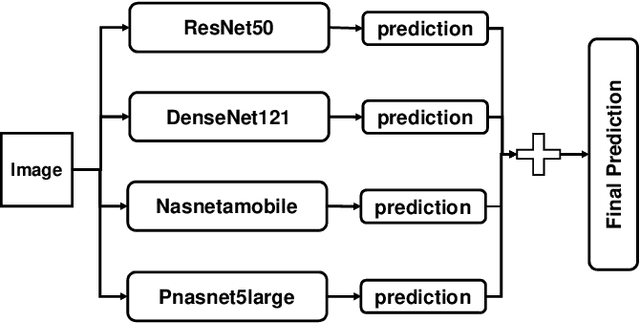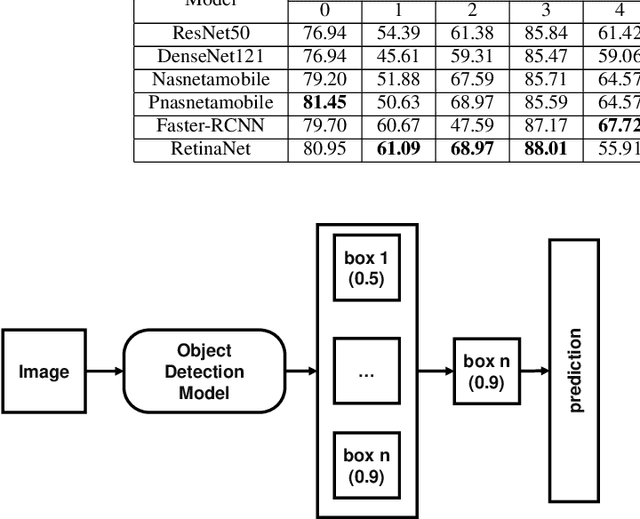Computer-Aided Clinical Skin Disease Diagnosis Using CNN and Object Detection Models
Paper and Code
Nov 20, 2019



Skin disease is one of the most common types of human diseases, which may happen to everyone regardless of age, gender or race. Due to the high visual diversity, human diagnosis highly relies on personal experience; and there is a serious shortage of experienced dermatologists in many countries. To alleviate this problem, computer-aided diagnosis with state-of-the-art (SOTA) machine learning techniques would be a promising solution. In this paper, we aim at understanding the performance of convolutional neural network (CNN) based approaches. We first build two versions of skin disease datasets from Internet images: (a) Skin-10, which contains 10 common classes of skin disease with a total of 10,218 images; (b) Skin-100, which is a larger dataset that consists of 19,807 images of 100 skin disease classes. Based on these datasets, we benchmark several SOTA CNN models and show that the accuracy of skin-100 is much lower than the accuracy of skin-10. We then implement an ensemble method based on several CNN models and achieve the best accuracy of 79.01\% for Skin-10 and 53.54\% for Skin-100. We also present an object detection based approach by introducing bounding boxes into the Skin-10 dataset. Our results show that object detection can help improve the accuracy of some skin disease classes.
 Add to Chrome
Add to Chrome Add to Firefox
Add to Firefox Add to Edge
Add to Edge